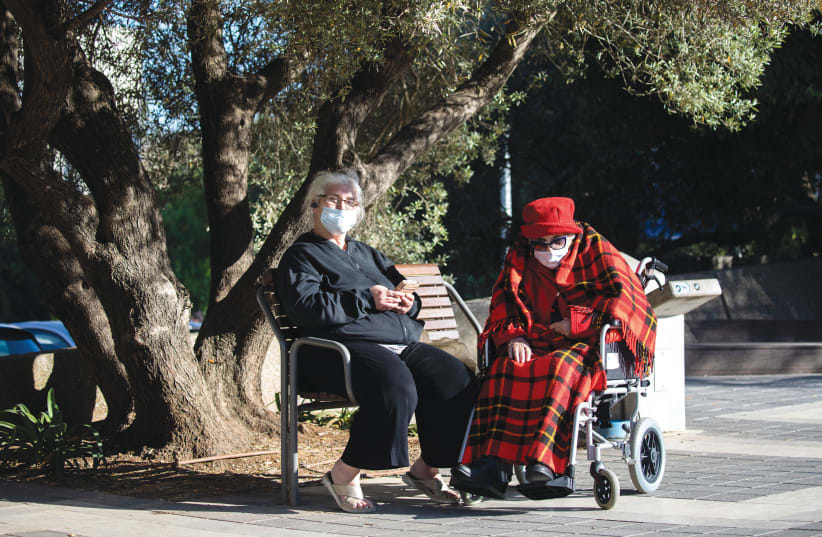The students responsible for the initiative, Tamar Nagler and Liat Epstein, said that they were inspired by the events of the first lockdown, and decided to team up and lead a team of volunteers with the sole purpose of helping make the city’s elderly population feel a little less isolated.
“During the first lockdown of coronavirus in Haifa we started thinking about the elderly that were suddenly dependent on other people and weren't able to take care of basic needs,” Nagler, a third-year nursing student explained. “Suddenly, this population of the city was cut off from their loved ones and their community and were faced with no social outlet.”
“They just needed someone to talk to, even over the phone. This is true not only during lockdown, but the whole year,” Epstein, a third-year student of the school’s Department of Occupational Therapy, added.
The team of volunteers proved itself with a successful pilot program in March, and then continued to join forces with the University’s Dean of Students and the Welfare Department of the city’s municipality to make the program official.
Now, the first successful pilot is being developed into a full-scale operation, as the university intends to begin its next academic year this upcoming October, with the launch of a pilot project that will train students to serve as neighborhood coordinators working with municipal caseworkers and providing assistance to Haifa's population of elderly citizens.
The students who are accepted into the program will receive the university’s new “Keeping In Touch” 6,000 NIS scholarship for completing 80 hours of volunteer service.
“In addition to helping senior citizens, this project also advances cooperation between academia, university, and municipality authorities so it’s a win all around,” Nagler said.
During their training, student volunteers will be assigned a social worker whose job will be to closely monitor their progress and spot any problematic issues that may come at a later stage in order to take all measures to ensure the safety of the elderly citizens.
According to the initiative, upon completion of their training, every student is paired with one specific senior citizen, allowing the relationship to be built over time. It is estimated that during its first phase, the initiative will include aiding some 60 senior citizens throughout the city.
Currently, because of coronavirus restrictions, volunteer interaction will only be conducted over the phone, but Epstein and Nagler hope more face-to-face contact will be possible sometime in the future.
"I was personally very angry about the first lockdown," Nagler confessed. “The elderly were stripped of their independence. Self-isolation should be their decision. From a human rights perspective, we know how seriously and rapidly a person can deteriorate during a lockdown.
“We obviously can't say they're safe to go out, but staying indoors does harm, as well. This project, then, is a good compromise. It enables them to still be in touch with the community," Epstein added.
The city of Haifa constitutes the second-largest population of elderly citizens in Israel.
